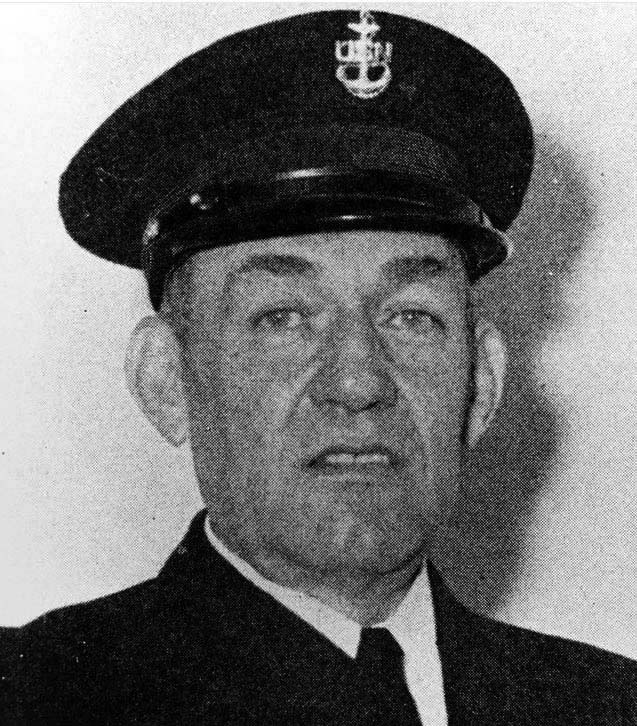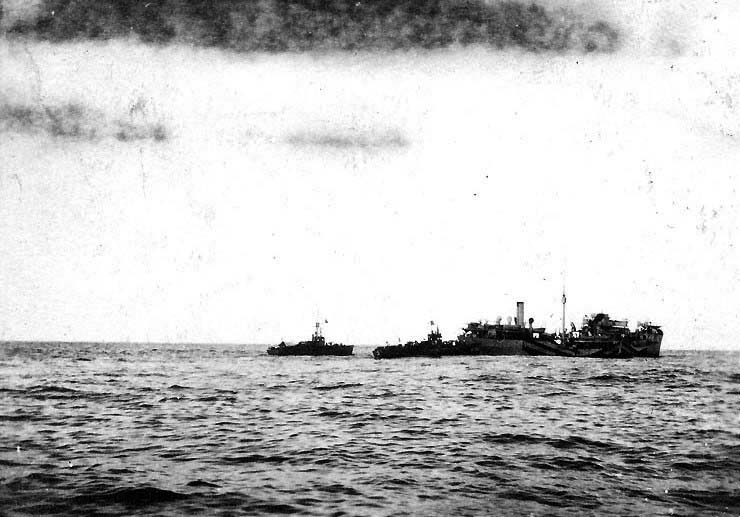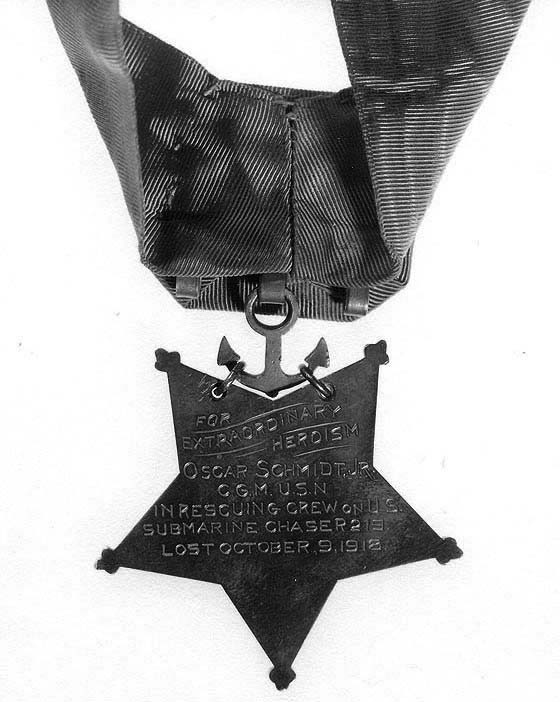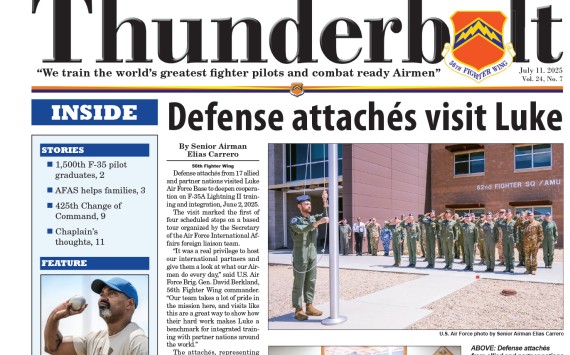
Navy Chief Gunner’s Mate Oscar Schmidt Jr. likely knew working on a ship during World War I would be perilous, but he probably didn’t expect to save two lives before he even reached the shores of Europe. He did that during an incident at sea, and his bravery earned him the Medal of Honor.
Schmidt was born in Philadelphia on March 25, 1896. According to a 1962 York Dispatch article, he joined the Navy in 1913 and remained in until 1919. During World War I, he served on the fuel ship USS Chestnut Hill.
On Oct. 9, 1918, the ship was part of a convoy crossing the Atlantic for war in Europe when disaster struck.
According to the York Dispatch, the Chestnut Hill was fueling submarine chaser 219 near the Azores when there was an explosion in the small ship’s forward tanks. The blast threw several crew members into the air and required the chaser to be abandoned.
Schmidt, watching from the Chestnut Hill, saw a man whose legs had been partly blown off while hanging on a line from the bow of the chaser. Schmidt jumped overboard, swam to the man and carried him from the bow to the stern. There, a member of the chaser’s crew helped him put the injured man on the submarine’s afterdeck.

Schmidt then tried to push his way toward the middle of the ship to get another man who was seriously burned, but the flames from the explosion were too hot to pass through. Schmidt eventually saw the man fall overboard, and when he drifted toward the stern, Schmidt grabbed the man and helped him aboard.
According to the York Dispatch, when a reporter later asked Schmidt what he was feeling during the rescue, he replied, “I didn’t think before I acted. If I would have thought about it, I would not have done it.”
For his heroic deeds, Schmidt received the Medal of Honor on March 15, 1919. He also received the Italian War Cross, the York Dispatch reported.
After the war, Schmidt left the Navy and moved to York, Pennsylvania, where his father bought him a house in 1920. By then he was married to Helen Goldey, and they had two sons, Robert and Wesley. Both boys went on to serve in the military as well, in the Navy and Air Force, respectively.
Schmidt worked at the York Safe and Lock Company, where his dad was employed. In 1929, the company sent him to Japan to supervise construction of a Tokyo bank vault that Emperor Hirohito later used as a bomb shelter during World War II, according to the Indiana Evening Gazette of Indiana, Penn.
Schmidt was the supervisor of one of the company’s assembly lines during World War II, his obituary in the York Daily Record said. The newspaper also reported that Schmidt headed the guard force at the York Naval Ordnance Plant when the Navy took it over in 1946.

Schmidt’s wife, Helen, died in 1951. That same year, he switched careers, buying and operating the Hotel Lincoln in York.
Schmidt was a member of the Army and Navy Legion of Valor. In May 1958, he joined dozens of other Medal of Honor recipients at a Memorial Day ceremony in the Rose Garden of the White House, where he met President Dwight D. Eisenhower.
Schmidt continued working in the hotel industry until 1963 when, according to the York Daily Record, he moved to Somers Point, N.J. There, he married a woman named Louise.
Schmidt died in Somers Point on March 24, 1973, a day before his 77th birthday. He is buried in Arlington National Cemetery.

Schmidt’s Medal of Honor can be found at the Freedoms Foundation in Valley Forge, Penn.
Editor’s note: Medal of Honor Monday highlights Medal of Honor recipients who have earned the U.S. military’s highest medal for valor.











